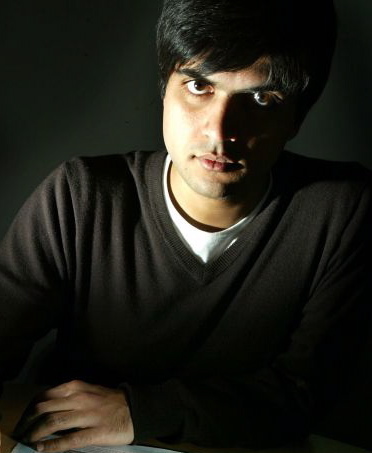How the UK government twists science
A new report by the House of Commons science select committee criticises the UK government for twisting science to its own purposes. Does any of this remind people of the esteemed George Bush? And just a week after UK prime minister Tony Blair made such a thing of standing up for science against those who want to twist it. Ouch, Mr Blair. According to my colleague James Randerson in the Guardian:
The government often hides behind a figleaf of scientific respectability when spinning unpalatable or controversial policies to make them acceptable to voters, according to a report by MPs critical of the way science is used in policy.The parliamentary science and technology select committee said that scientific evidence was often misused or distorted to justify policy decisions which were really based on ideological or social grounds.
The report, the culmination of a nine-month inquiry, calls for a "radical re-engineering" of the way the government uses science. "Abuse of the term 'evidence based' ... is a form of fraud which corrupts the whole use of science in government," said Evan Harris, the Liberal Democrats' science spokesman and a member of the committee. "It's critical that the currency of an evidence base is not devalued by false claims."
The investigation highlighted several examples of misuse of science, including a witness who told the MPs that his work on crime statistics had been twisted by the Home Office to give the best possible spin."I had pointed out prior to the Home Office publishing this that I thought their interpretation differed from our own and I had identified where I thought the difference lay," said Tim Hope, a criminologist at the University of Keele who appeared before the committee in May. "Despite that, they proceeded to publish their own analysis. The inferences from that analysis were, let us say, rather more favourable to the political interests in this programme than were my own."
Professor Hope added that several researchers at a conference in 2003 were told at the last minute not to present work paid for by the Home Office, even though they were already on the conference programme. He believed this was because the Home Office wanted to control the way the information was released.
Some of the worst examples of false claims, says the committee report, Scientific Advice, Risk and Evidence Based Policy Making, came in drug policy, which Dr Harris described as an "evidence-free zone". Magic mushrooms, for example, are classified in the most dangerous drug category, class A, even though there is scant evidence that they are harmful.
The committee also criticised government claims that the ABC drug classification system reduces crime, saying there was no evidence to back that up.
"Governments have a right when they are elected to make policy because of sociological reasons or because of political imperatives," said Phil Willis, the committee's chair, "but what they don't have a right to do is to say that that is based on sound scientific evidence when it isn't."
The report calls on government departments to state clearly when statements are based on scientific evidence, and when they are going against evidence for political reasons.
The MPs also recommend the creation of a government scientific service made up of independent expert advisers and that the government's chief scientific adviser, currently Sir David King, be given a seat on the Treasury board. The committee challenges the perception that industry representatives on scientific advisory committees are "frequently seen as less trustworthy" than representatives of non-government organisations. It said technical committees should not routinely have lay members.
The MPs call for change in the culture of the civil service, where a scientific background is often seen as a barrier to promotion.
A spokesman for the Department of Trade and Industry said it recognised there was room for improvement, but added: "The UK has rightly developed an international reputation for its world-leading use of science in government, for example in climate change, health issues and international development."
Facts and fallacies
The science and technology select committee found numerous examples of the misuse of science by government departments:
· Government claims that the ABC drug classification system reduces crime.
· Magic mushrooms placed in the most dangerous class A category.
· Over-zealous regulations proposed for medical technicians using MRI scanners with no evidence base.
· Homeopathic remedies allowed to be licensed by the Medicines and Healthcare Regulatory Agency despite not meeting the same standards of proof as conventional medicines.
· Cost estimates on ID cards published before key technical decisions were taken.
· Wide misuse of the term "precautionary principle".


No comments:
Post a Comment